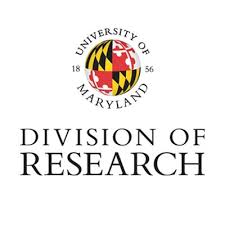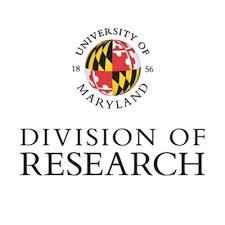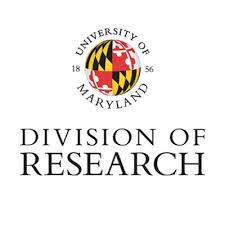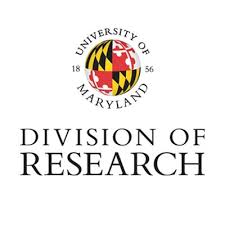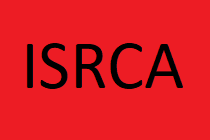The University of Maryland's Division of Research announced four New Directions Fund awards, supporting new faculty research projects in Education, History, and Psychology.
The New Directions Fund awards are part of the Maryland Catalyst Fund program, an internal faculty research support program designed to seed and expand research activity, visibility and impact. The program is designed to enable innovative research, incentivize the pursuit of large, complex, and high-impact research initiatives, and help UMD faculty to be more competitive for extramural research awards. The Maryland Catalyst Fund program is overseen by the Vice President for Research (VPR) and managed by the VPR’s Research Development Office, in coordination with UMD academic units and the Provost.
The four awards will support the following projects:
Exploring the Impact of an Inclusive Higher Education Program for Students With Intellectual And/or Developmental Disability
PI: Yewon Lee, Assistant Clinical Professor; EDUC-Counseling, Higher Education and Special Education
Individuals with intellectual and/or developmental disability (I/DD) have one of the lowest employment rates in the U.S. This is largely due to a lack of inclusive postsecondary education (PSE) options for people with I/DD. To help address this issue, the Center for Transition & Career Innovation (CTCI), nested in the College of Education, launched the TerpsEXCEED (EXperiencing College for Education and Employment Discovery) Program in 2021. This 2-year inclusive PSE program prepares students with I/DD for competitive employment and independent living. There are very few inclusive higher education programs across the nation and their outcomes and impact are under-researched. Our project explores how an inclusive PSE program impacts students with I/DD, their families, and the campus community through a case study. Our findings will inform the conceptual development of a replicable inclusive PSE model and serve as a seed for future federal funding opportunities and investments (e.g., Transition and Postsecondary Programs for Students with Intellectual Disabilities [TIPSID]). We believe that our work will contribute to disrupting systemic exclusion of people with I/DD by challenging traditional beliefs and practices of higher education.
Slavery, Law, and Power: Debating Justice and Democracy in Early America and the British Empire
PI: Holly Brewer, Associate Professor; ARHU-History
The Slavery, Law, & Power project sets up a system for sharing manuscript materials that connect slavery with processes of law and power, with a focus on the early British empire and the mainland that would become the United States. We now live in an era where it is not enough for experts in any given field to weigh in and pronounce truths that everyone can believe. To understand issues such as those surrounding the emergence of slavery, of empire, and of theories and practices of absolute monarchy, at the same time as theories and practices of human rights, democracy and supposed enlightenment–raises many questions about the connections between them. This project tries to fill a gap in existing collaborative projects related to slavery (e.g. those on the slave trade such as Slave Voyages, and on individual lives such as Enslaved.org) to focus on the connections between the emergence of slavery and the way it was supported by larger power structures, including judicial decisions and laws, in the midst of complex debates about justice. By making the evidence accessible, it enables users whether scholars, students, or interested members of the public– to not only understand the past but also the legacies of that past in the present.
The CARE Youth Internship Program at the University of Maryland
PI: Ariana Gard, Assistant Professor; BSOS-Psychology
Youth participatory action research (YPAR) is an innovative equity-focused form of Community Based Participatory Research in which youth are trained to identify and analyze social issues relevant to their lives (Ginwright, 2007). With support from the 2022 Maryland Catalyst New Directions Funds, the Community And Resilient Environments (CARE) Youth Internship Program will empower youth of marginalized identities to conduct qualitative and quantitative research in their own communities. Youth participants will assess social and physical features of neighborhood blocks in NE Washington DC, collect physiological and air pollution data using wearable sensors, describe the implications of environmental quality on health and wellbeing, and receive training in research principles and ethics, basic research methods, and how to present study findings to local community leaders and members. This project represents a new research direction for Dr. Arianna Gard, whose work thus far has focused on examining the impacts of environmental adversity on youth neurobehavioral development using more traditional researcher-driven quantitative methods. By training and empowering youth to become researchers in their own communities, the Growth And Resilience across Development (GARD) Lab is working towards advocating for community-driven methods in developmental science.
Interaction Detection in Context-Aware Physical Classroom Spaces: Understanding Individual Children’s Classroom Experiences
PI: Jason Chow, Associate Professor; EDUC-Counseling, Higher Education and Special Education
A rich language environment is essential for children to be successful in the preschool classroom and beyond. Adult language input is a fundamental component of the environment and enables the acquisition of these skills. These tenets, recognizing the importance of the environment and the role of adult responsiveness to children, are central components of the transactional theory of language development. This proof-of-concept project aims to pilot the novel application of interaction-detection technology. We will partner with the College of Education's Center for Young Children and use interaction-detection technology to understand the real-time relations between teacher language input, child language development, engagement, and peer interactions. We will test the usability of interaction-detection technology linked with audio data to capture children’s learning experiences and the distribution of teacher’s attention and engagement in real time. This project will extend current research on average experiences and begin to unpack variation in individual learning experiences; findings will lead to data-supported external funding applications to federal agencies that support this line of inquiry.
For more information about the Maryland Catalyst Fund and New Directions Awards, visit the Division of Research website.

